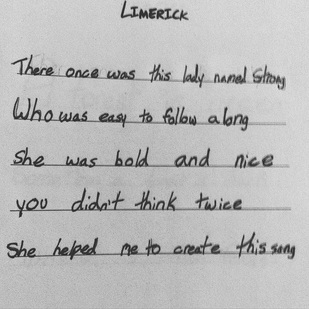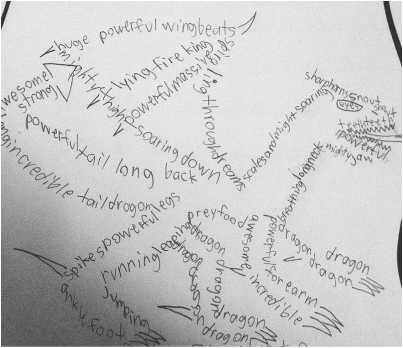#1. What is your greatest challenge and when is it most difficult to be solid and consistent as the teacher responsible for the students in your classroom? How can you tell when your teacher presence is working? What are you doing and what are the students doing? How does this feel for you? Use specific example(s) to help illustrate your reflection.
My greatest challenge has been figuring out the line between being an engaging, enthusiastic and excited teacher, and effective classroom management. The first week was the main part of this learning. I was excited, I was nervous, and I was unsure of my teaching ability, and also teaching new material (never taught before!), so I went overboard on the ‘excitement factor’. This resulted in the kids also becoming excited and talking amongst themselves, and it was very hard to bring them back to attention and to productive learning. As we have said, It’s NOT a party! Never Use the P- word! It’s work- it can be FUN work, but you have to control the class at all times! And riling them up first and THEN trying to get them to focus is challenging.
The flip-side of that lesson was the one day I was very ill and had NO energy. The lesson I presented didn’t hook them- because I have relied on my personality and ‘stage presence’, and I just didn’t have it that day. As a result, they were also not interested in the lesson- review of the books that evening showed that we required a re-teach.
So this brings home the learnings that ‘we teach who we are’ but also that the class reflects our energy. By the end of the two weeks I feel I was doing much better at ‘containing’ my excitement yet still engaging the kids. Still much to learn but certainly having a deeper understanding of this teaching concept.
The flip-side of that lesson was the one day I was very ill and had NO energy. The lesson I presented didn’t hook them- because I have relied on my personality and ‘stage presence’, and I just didn’t have it that day. As a result, they were also not interested in the lesson- review of the books that evening showed that we required a re-teach.
So this brings home the learnings that ‘we teach who we are’ but also that the class reflects our energy. By the end of the two weeks I feel I was doing much better at ‘containing’ my excitement yet still engaging the kids. Still much to learn but certainly having a deeper understanding of this teaching concept.
#2. Share a time during this two weeks when you have structured your learning around clear criteria — this could be a single lesson or a series of lessons within a topic/subject. How have you communicated this criteria to the students? Describe the assessment that occurred during the learning (student self-assessment, student peer-assessment, formative assessment by you). How has this impacted student learning? How has this affected the balance between what you are doing and what the students are doing during a lesson? How does this impact your role as the teacher? How does this feel?
Having clear criteria and breaking things down into steps is the ‘secret’ to good teaching. As this session progressed, my criteria became simpler, the steps became smaller, and the lessons became even more successful. An effective tip was keeping things chunked into Threes. I am still learning how to explicitly link assessment into my criteria, and this will be my focus for the next session.
I’ve also learned that the standard ‘Check For Understanding’ of asking kids to show thumbs up/down/sideways does not necessarily work very well- kids tend to say “YES” to things even when they don’t understand.
I’ve also began to simplify my lessons as I am realizing the amount of time things take, and that my lessons need to give space for facilitated discussion with the class to allow for multiple understanding of a concept. So, Less is More, in regards to individual lessons. Being able to have most kids have a good understanding of a concept before moving on is essential, so spending multiple days on one concept is ok! Fundamentals are important, and it is easier to give the advanced learners extensions that they can focus on. I have worked out a trial seating plan for next session which seats the strong academic students with the ones that struggle, and hope to be able to have more ‘pair and share’ activities where the stronger students can assist the weaker ones to grasp a concept. We will see how that goes, and much of that will be teaching them HOW to provide peer support etc. So will build that into my planning.
I’ve also learned that the standard ‘Check For Understanding’ of asking kids to show thumbs up/down/sideways does not necessarily work very well- kids tend to say “YES” to things even when they don’t understand.
I’ve also began to simplify my lessons as I am realizing the amount of time things take, and that my lessons need to give space for facilitated discussion with the class to allow for multiple understanding of a concept. So, Less is More, in regards to individual lessons. Being able to have most kids have a good understanding of a concept before moving on is essential, so spending multiple days on one concept is ok! Fundamentals are important, and it is easier to give the advanced learners extensions that they can focus on. I have worked out a trial seating plan for next session which seats the strong academic students with the ones that struggle, and hope to be able to have more ‘pair and share’ activities where the stronger students can assist the weaker ones to grasp a concept. We will see how that goes, and much of that will be teaching them HOW to provide peer support etc. So will build that into my planning.
3) Comment on any relationship you discover between your response to Reflection #1 and Reflection #2.
I think that as I fine tune my planning, I won’t need to rely so much on my sparkling effervescent stage presence to ‘sell’ the lesson. As a performer, I create a great rapport with the students, and and very confident standing up and teaching, now I just need to have the substance in my lessons to back that up.
I also will focus on having my prep for my lessons done at least three days in advance, and not be copying things the morning of the lesson. I am very motivated to succeed as a teacher, and have been receiving wonderful feedback and advice from both my sponsor teacher and my VIU supervisor; I can’t wait to get back into the classroom!
I also will focus on having my prep for my lessons done at least three days in advance, and not be copying things the morning of the lesson. I am very motivated to succeed as a teacher, and have been receiving wonderful feedback and advice from both my sponsor teacher and my VIU supervisor; I can’t wait to get back into the classroom!


 RSS Feed
RSS Feed
